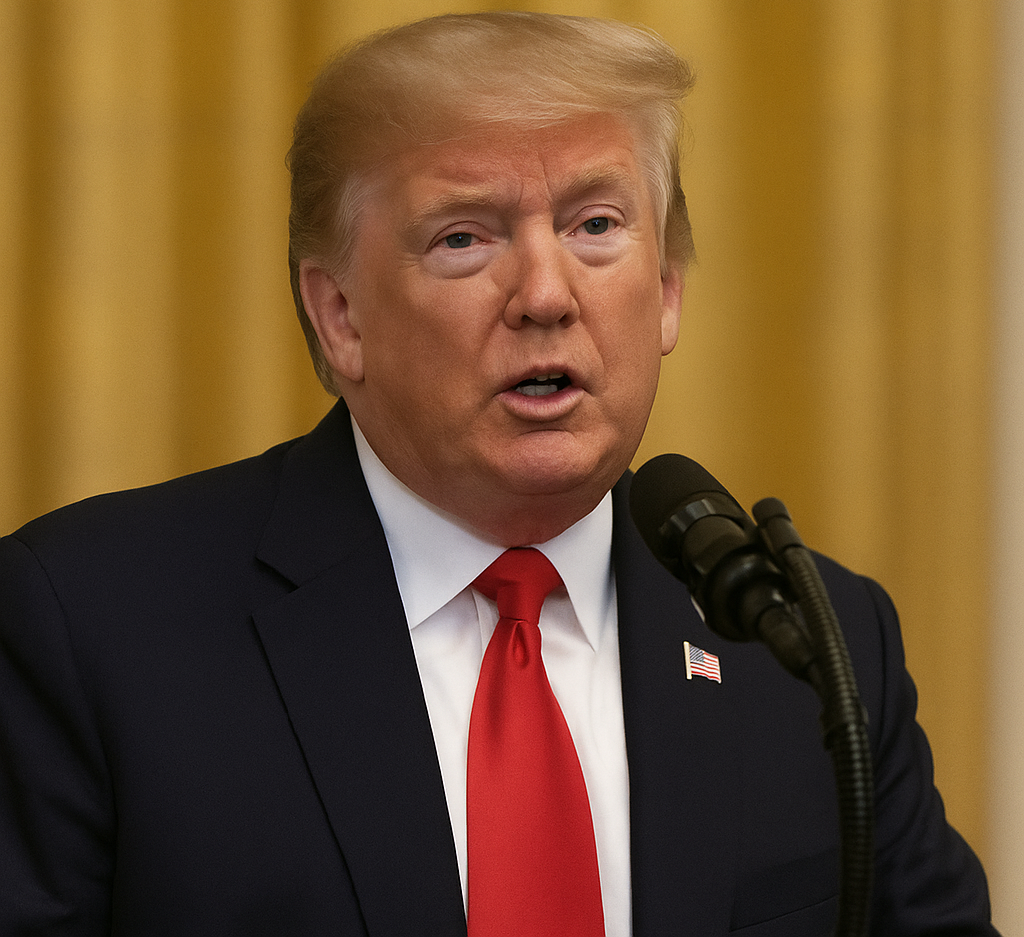In a sharp escalation of trade tensions, U.S. President Donald Trump on Tuesday signaled that he may “substantially” increase tariffs on Indian goods within the next 24 hours.
His remarks, made during an interview with CNBC, appear to stem from growing dissatisfaction with India’s continued oil imports and defense cooperation with Russia.
“India has not been a good trading partner,” Trump told CNBC. “They do a lot of business with us, but we don’t do nearly as much business with them. So we settled on a 25 percent tariff, but I think I’m going to raise that rate quite substantially in the next 24 hours.”
Trump reiterated his long-standing criticism that India imposes some of the highest tariffs on American products and claimed that the trade imbalance is heavily skewed against the U.S.
His latest threat comes on the heels of his earlier pledge to penalize countries maintaining economic ties with Russia, including members of the BRICS alliance.
Referring to India’s purchases of Russian crude oil and military equipment, the U.S. President accused New Delhi of indirectly aiding Moscow’s ongoing war efforts.
“They’re buying Russian oil and fueling the war machine. And if they’re going to do that, I’m not going to be happy,” he said.
Russia Defends India, Slams U.S.
Moscow was quick to respond to Trump’s warning, criticizing what it called “aggressive and illegal” pressure tactics against India.
“Such remarks are not just statements against India but indirect threats to Russia and our global partnerships,” said a senior official from the Russian Foreign Ministry.
“Trade between Russia and its partners is a matter of mutual sovereignty and strategic cooperation. Attempts to coerce sovereign nations into abandoning legitimate economic relationships will be viewed as interference in domestic and foreign policy.”
India Hits Back at “Unjustified” Threats
India’s Ministry of External Affairs (MEA) issued a firm response, rejecting Trump’s accusations as “unreasonable” and asserting that India’s imports from Russia are essential for its national interest.
“India’s energy purchases are designed to ensure affordable and reliable access to energy for our citizens. These are not luxury imports, but vital economic necessities driven by global market conditions,” the MEA said in its official statement.
The statement further pointed to what it called the “hypocrisy” of Western nations that continue their own trade relations with Russia while singling out India for criticism.
“It is noteworthy that those lecturing India on morality and sanctions are themselves engaged in substantial trade with Russia. Unlike India, their purchases are not tied to essential national needs,” the statement added.
25% Tariff Already Imposed
According to U.S. officials, a 25 percent tariff on Indian goods was already imposed on August 1 as a preliminary measure. Trump had earlier declared this deadline to signal his administration’s growing impatience over unresolved trade issues and India’s role in BRICS — the intergovernmental group that also includes Russia, China, Brazil, and South Africa.
The initial tariff hike targeted a range of sectors including textiles, steel, and automotive components, which account for significant Indian exports to the United States.
Trade analysts warn that an escalation beyond the current 25 percent rate could severely impact bilateral trade, which stood at over $160 billion in 2024.
Experts Warn of Fallout
Policy experts have expressed concern over the potential long-term consequences of a trade war between the world’s largest democracies.
“Tariff escalations could trigger a tit-for-tat response from India, disrupt supply chains, and harm both economies,” said Professor Arvind Mehta, an international trade expert at Jawaharlal Nehru University.
“India is also diversifying its partnerships, including with the European Union, ASEAN, and the Middle East. A hardline U.S. approach may only push India further away.”
In Washington, some lawmakers have called for a more balanced strategy, emphasizing diplomacy over economic coercion. “India is a key strategic partner in the Indo-Pacific. We must resolve differences through dialogue, not threats,” said U.S. Senator Mark Warner.
Strategic Balancing Act
India has consistently defended its energy and defense cooperation with Russia as part of a broader strategy to maintain autonomy in its foreign policy.
While New Delhi has deepened ties with the U.S. in areas such as defense, technology, and climate cooperation, it has also resisted pressure to sever ties with traditional allies like Russia.
At a recent BRICS summit, Indian Prime Minister Narendra Modi reiterated India’s commitment to a multipolar world order and defended the right of nations to pursue independent trade and energy policies.
With the U.S. election season heating up and Trump intensifying his “America First” rhetoric, India now finds itself navigating a complex web of diplomatic and economic pressures.
Whether the threatened tariff hike materializes — and how India chooses to respond — could have far-reaching consequences for the future of Indo-U.S. relations.








